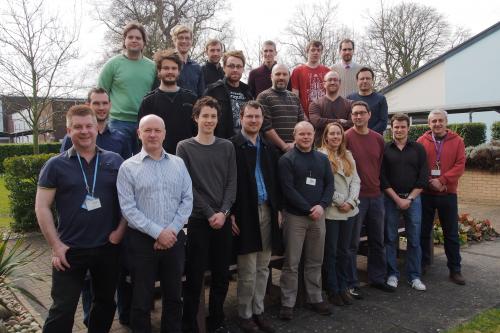Space Instrumentation
We perform world-leading research into Space Science and Instrumentation. Our activities span basic research into Space Science, and the investigation and development of new technologies for use in space, to Space Projects, in which we develop flight hardware and provide support for many space missions both in development and operation.

Working in collaboration with Space Agencies, companies and other Universities from around the world in multi-national instrument consortia, Space Instrumentation is broadly focussed around four key themes:
- Image sensor research and applications is led by the industry-sponsored Centre for Electronic Imaging performing fundamental research into silicon imaging sensors (Charge Coupled Devices – CCDs and Complementary Metal-Oxide Semiconductors – CMOS) and applying these technologies to space missions such as JUICE, Athena, SMILE and WFIRST.
- Spectroscopic and imaging techniques (working closely with the Planetary Atmospheres Group) including the development and operation of the NOMAD instrument and operation of the CaSSIS instrument on the ExoMars Trace Gas Orbiter
- Analytical instrumentation, developing miniature mass spectrometers to fly on space missions such as Rosetta and PROSPECT to measure the chemical and isotopic composition of volatiles. As well as space missions, the group is actively involved with projects back on Earth making use of technology developed and expertise gained through space research.
- Investigating habitats for space exploration by combining the fields of the Built Environment, Manufacturing, Materials, Space Engineering, and Planetary Sciences, to investigate the use of lunar soil (or regolith) as a building material for 3D-printed lunar habitats and developing the techniques and instrumentation to enable these extra-terrestrial construction processes.
We also are actively involved in the development of many space projects; with the current major missions of Euclid, JUICE and Athena, whilst also providing hardware for CubeSats – some of the smallest spacecraft which push the boundaries of what is possible in space. We actively promote collaboration between the university and industry, and look to exploit the outputs of our research programmes both in-collaboration with industry, and through creation of new ventures. Much of the research within Space Instrumentation aligned with the University’s strategic focus on Space Science and Exploration.

.jpg)
